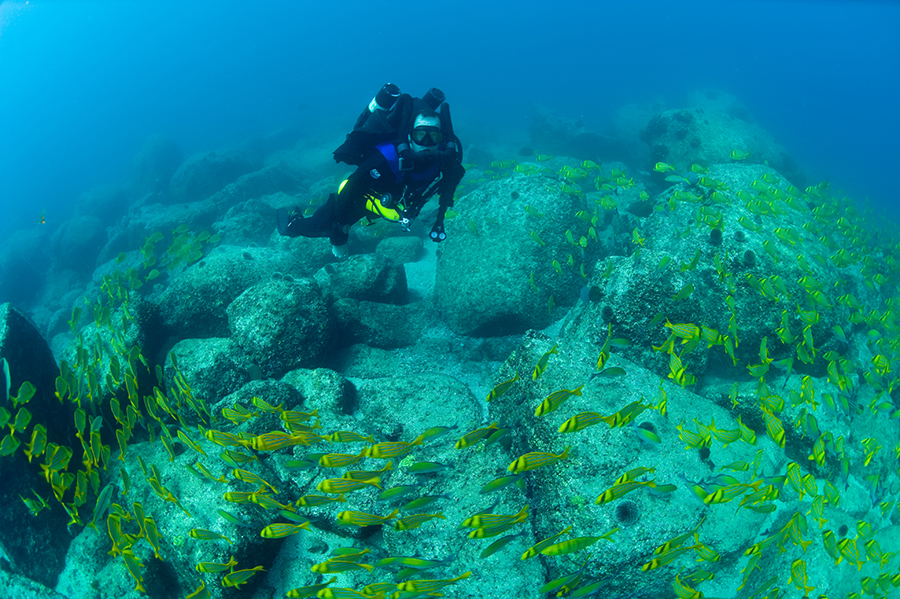A few years ago, I completed a Motorcycle Safety Class and was struck by the similarities to training rebreather divers. It was really good to be a student instead of an instructor for a change. It’s one of those experiences that reminds you what performance pressure feels like and reinforces the qualities of good instruction.
I have to say that I am accustomed to thriving and performing well in new learning situations. However, I had absolutely no background in motorcycles and started off at the bottom of the heap amongst my fellow students. Everything was new.
I was pleased to be given procedures and checklists that kept me on track. A pre-ride check let me assess the readiness of my bike. An ignition-check mantra helped me recall the steps for safely starting the motorcycle. Rules of the road engaged the entire class in safe operation on the driving range.
But when all was said and done, there were safe operators, risky operators, people who didn’t have a clue and those of us who were trying hard to learn and never make the same mistake twice. Discovery learning always works best for me. There is nothing like almost dropping the bike to highlight the lesson of not using the front brakes in a curve!
I was also struck by the importance of giving-in a little and letting the bike become an extension of my body. When you fight technology, things don’t work very well. When you look up and move with the bike, things get much easier. Looking far down the road and anticipating the possibilities ahead, keep you safe.
Finally, I was very aware, that the calm demeanor of my instructor was a critical aspect that contributed to my best performance. When a second coach raised his voice, class performance fell apart and people started to make mistakes.

So what can you learn from this as a new rebreather diver?
- Find a patient instructor who will allow you to make some mistakes, so you can learn important lessons through discovery.
- Don’t be afraid to make mistakes. If you weren’t going to make any, you wouldn’t need to be in a class.
- Work towards becoming a physiological extension of your rebreather. Don’t keeping fighting it for buoyancy or over-thinking it for counterlung volume.
- Use checklists and verbal keys for important safety steps.
- Keep your head in the game and don’t let yourself be distracted by the performance of others
- Look ahead and anticipate problems and issues. Rehearse those scenarios until you become fluent in the new technology and motor skills.
